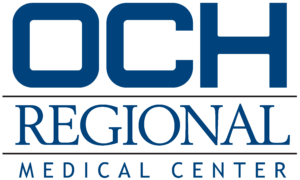[Re-published by permission of Starkville Daily News. Original publication date: August 13, 2013]
By Alex Holloway
 OCH Regional Medical Center CEO Richard Hilton spoke to the Starkville Rotary Club recently about the hospital’s advances and benefits.
OCH Regional Medical Center CEO Richard Hilton spoke to the Starkville Rotary Club recently about the hospital’s advances and benefits.
Throughout his presentation, “Rooted in Community,” Hilton noted OCH Regional’s impacts on the area economically and the host of services it offers local residents.
Hilton said the hospital, Starkville’s second-largest employer after Mississippi State University, provided a $63.6 million annual payroll economic impact to the area–including $31.1 million through 600 direct OCH jobs and $32.5 million from another 390 related community jobs. He said, using data from the Health Associates of New York State Solutions Company, that the hospital generated $106.3 million in local and state economic impact in a year.
Hilton’s presentation came in the midst of resurfacing talk about selling or leasing the county-owned hospital. Though his presentation avoided the issue, it did come up during a brief question and answer session.
When a Rotarian asked about funding, Hilton said the county didn’t provide any funding to the hospital on an operational basis.
“From an operational standpoint, in the main core functions of the hospital, the county does not put money into the operation of the hospital,” he said. “The ambulance service is, in the state of Mississippi, a county-owned responsibility. They delegated that to the hospital to run, so they provide about six-tenths of a mill, about $220,000-230,000 a year, to help subsidize the operation. MississippiState puts in about $30,000. The city, up until about a year ago, put in about $40,000. Then they had some changes and they only provided a grant of about $15,000, and we’re asking for full support on that again.”
Hilton said two-thirds–or about 1,600–of the hospital’s ambulance runs went to Starkville. Around 700 go to the city and 150 to MississippiState.
Hilton said Capella Healthcare of Tennessee was still the primary party interested in buying the hospital. However, he said certain steps to lead to that point still hadn’t happened.
“There is a legalized process that has to go through before any kind of consideration can be given to selling or leasing the hospital,” he said. “That step has not been followed. If the proper steps are followed, then at the right time, requests for proposals will be put together to invite interested parties to put in whatever bid they want to and then they can be considered at that time. So really, Capella Health is a premature option at this time.”
Hilton said the hospital turned a $2.8 million profit in 2012. Through 2013, he said the hospital was slightly above breaking even, but external factors were impacting performance.
“Health care reform has kicked in,” he said. “Reimbursement is continuing to decline. Medicare and the sequestration program have had a 2-percent reduction in payment to hospitals. All of the hospitals in the state of Mississippi are being impacted the same way we are by health care reform. Some of the larger markets have better ability to sustain themselves. The smaller areas have a more difficult time. We’ll be looking at things as far as cost-containment options–my job is to keep the hospital profitable.”
OCH reinvests about $5 million yearly into maintaining equipment. After his presentation, Hilton said the hospital didn’t have any big immediate projects to work on, but would continue replacing equipment to maintain its functionality and prevent obsolescence.
“We’ve got to do that in order to recruit physicians,” he said. “We’ve got to be able to show them that we’re progressive. That’s a big draw. We can’t sit back. We’ve got to keep moving forward.”
